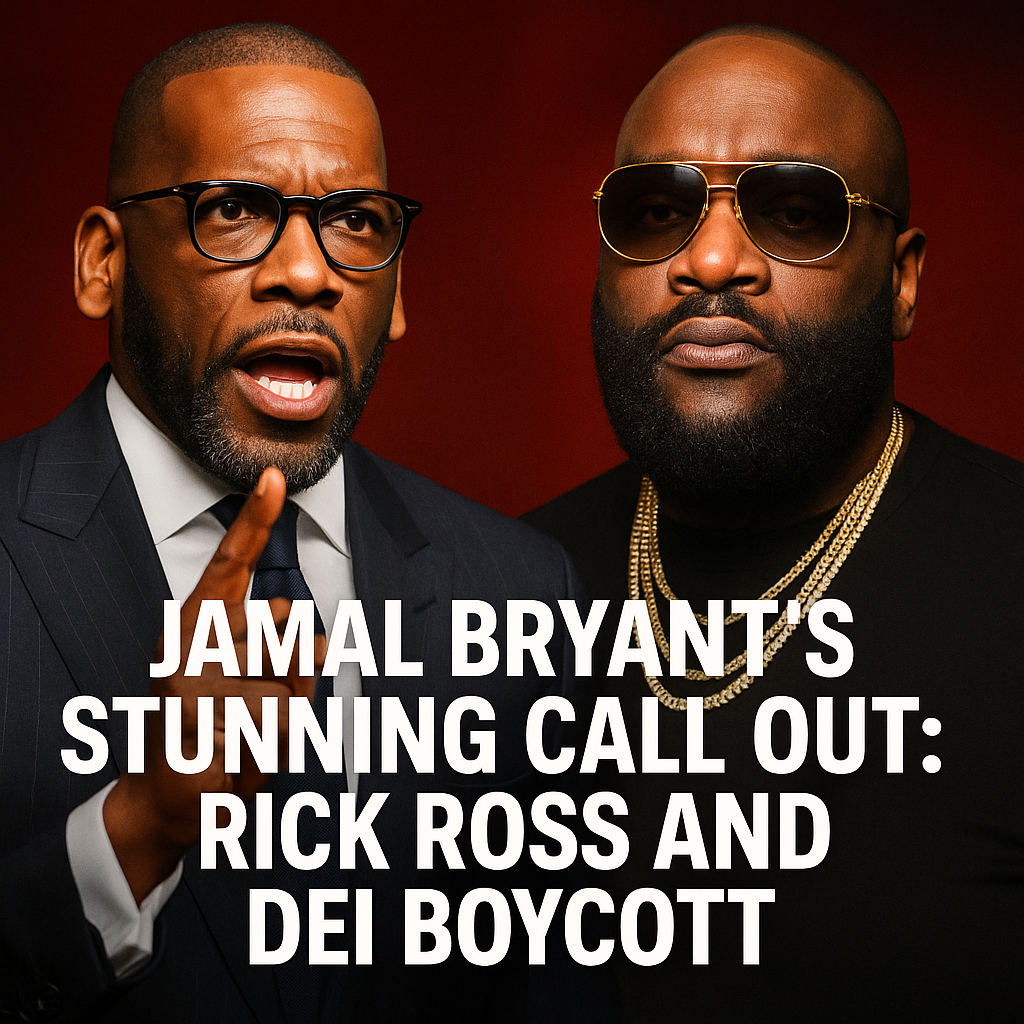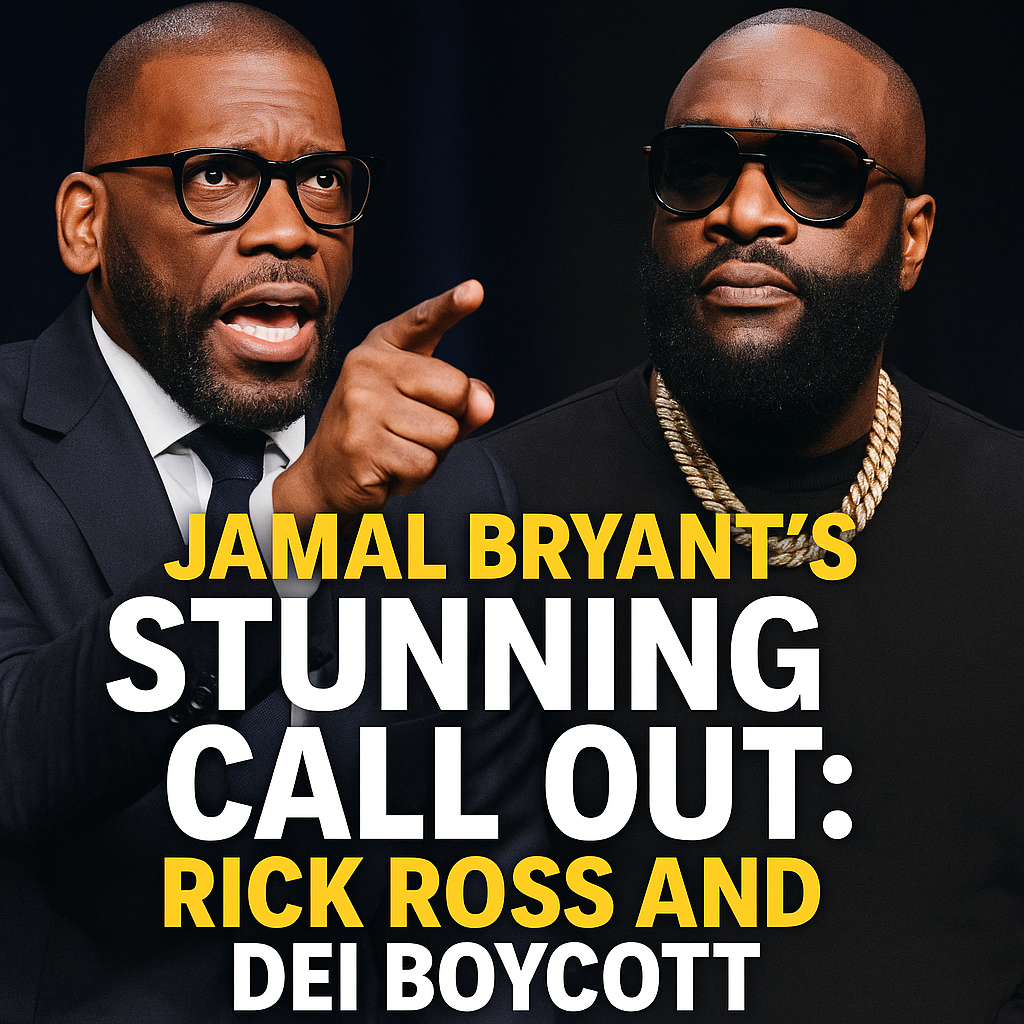Jamal Bryant’s Stunning Call Out: Rick Ross and DEI Boycott
Jamal Bryant’s Stunning Call Out: Rick Ross and DEI Boycott
Jamal Bryant’s stunning call out ignites a critical dialogue about social responsibility and consumer choices, as he confronts rapper Rick Ross over his recent shopping habits during a significant boycott. This issue transcends individual actions, delving deep into the realms of diversity, equity, and inclusion (DEI) and the broader implications of consumer behavior.
Understanding the Context of the Boycott

The DEI boycott, initiated by various community leaders and activists, aims to hold corporations accountable for their commitment to diversity and inclusion. Boycotts have historically served as a method for marginalized communities to voice dissent against practices perceived as discriminatory. In this case, the focus is primarily on major retailers that are criticized for not doing enough to foster inclusivity or for engaging in practices that contradict the principles of DEI.
Jamal Bryant, a prominent pastor and social activist, directed his attention towards Rick Ross after the rapper was spotted shopping at Target—a retailer currently facing scrutiny from DEI advocates. In his social media posts, Bryant emphasized the need for influential figures to lead by example, especially when their choices could significantly impact public perception and community actions.
Diverse Perspectives on Celebrity Accountability
Analyzing the responses to Bryant’s call-out reveals a landscape of differing opinions. Some supporters argue that public figures like Ross have an obligation to align their consumer behavior with their declarations of support for marginalized communities. They emphasize that celebrities wield substantial influence and their choices can either reinforce or challenge systemic inequalities.
On the other hand, critics of Bryant’s stance highlight the complexity of individual choices in the consumer marketplace. Some argue that while endorsing DEI initiatives is crucial, applying public pressure on celebrities may lead to undue scrutiny or misplaced expectations. For them, it raises the question of whether the responsibility lies solely on individual consumers or if broader systemic changes are necessary to create a truly equitable marketplace.
The Bigger Picture: Boycott Effectiveness and Motivations
As the discourse unfolds, it’s essential to consider the effectiveness of such boycotts. While they can successfully raise awareness and initiate dialogue, their long-term impact on corporate practices remains hotly debated. Studies suggest that consumers often gravitate towards brands that align with their values, yet this doesn’t always translate into tangible change from the corporations themselves.
Moreover, supporters of the boycott argue that individual consumer action is just one piece of a larger puzzle. The challenge is fostering collective action that encourages businesses to pivot towards more inclusive practices—not just during the duration of a boycott but as an ongoing commitment. Here, the role of influencers like Bryant becomes even more vital; their calls for accountability can mobilize community efforts and amplify the message in substantial ways.
Synthesis of Perspectives: The Path Forward
In examining the interplay between celebrity influence, boycotts, and corporate accountability, we arrive at an intricate landscape dotted with differing viewpoints. The diversity of opinions serves as a reminder of the complexities surrounding social responsibility in consumer behavior.
Bryant’s intervention may have triggered a necessary discussion about the responsibilities of public figures, but it also opens up inquiries into how boycotts operate in practice. Even if Ross chooses to shop wherever he likes, the heart of the matter lies in the ongoing pursuit for equity within society. The strength of community efforts, coupled with sustained pressure on organizations to enact substantive DEI initiatives, may ultimately define the success of these movements.
As public discourse evolves, the question remains: How can community leaders, influencers, and everyday consumers work collectively to ensure that the call for diversity, equity, and inclusion is not merely a trend but a lasting change? In an age where public figures hold significant sway, fostering these conversations and actions will be pivotal in shaping a more inclusive future.
Ultimately, Jamal Bryant’s call out serves not just as a critique of one individual’s choices but as an invitation for all to engage with the pressing social issues of our time. The dialogue sparked by this incident could lead to broader awareness and, potentially, transformation within both consumer behavior and corporate accountability.
By synthesizing viewpoints and weighing evidence from diverse sources, we can appreciate the nuance surrounding this complex issue, emphasizing the importance of collective action over individual scrutiny in the march toward a more equitable society.















